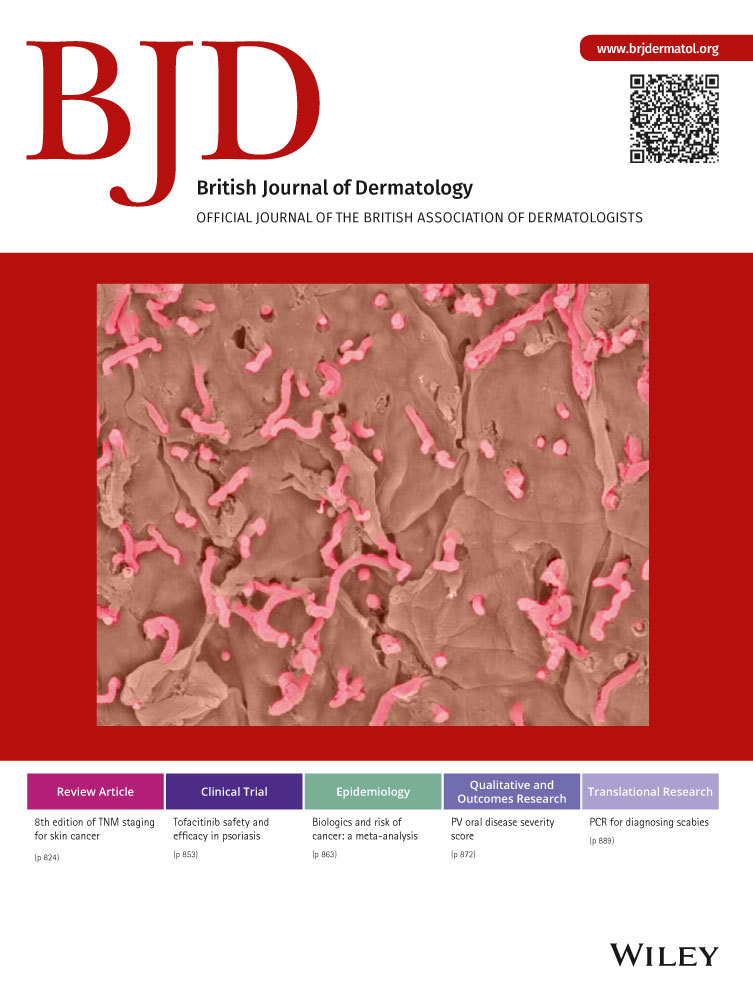The new 8th edition of TNM staging and its implications for skin cancer: a review by the British Association of Dermatologists and the Royal College of Pathologists, U.K.†
Plain language summary available online
Summary
The 8th edition of TNM (tumour, node and metastasis) has numerous and important changes compared with the 7th edition. Public Health England and the Royal College of Pathologists, U.K., have adopted the 8th edition of TNM (TNM8) published by the Union for International Cancer Control for skin cancer staging. These changes will have an impact on the management and commissioning of melanoma and nonmelanoma skin cancer (NMSC). The T1–T3 categories for NMSC staging require the clinician to measure the maximum dimension (usually diameter) of every potential invasive cancer. For squamous, basal and adnexal carcinomas, but not Merkel cell carcinoma (MCC), the T1–T3 categories are defined by new 20-mm and 40-mm divisions based on the maximum dimension of the lesion. In addition, new risk factors upstage T1 or T2 to T3. For melanoma, mitotic index no longer influences separation of pathological stage (pT1). There is a new, additional stratification level at 0·8-mm Breslow thickness. Subdivision pT1b, with a negative sentinel lymph node biopsy (SLNB) of pN0, is now stage IA compared with the previous IB. For MCC, SLNB is now included specifically in the pN staging system. The pT1 subdivision requires clinical information as to whether histologically involved nodes were clinically occult or detectable. For both melanoma and MCC the clinician must state whether the lymph nodes are occult or clinically detectable. Eyelid carcinoma continues to have a staging system different from that in general skin and the system is substantially revised in TNM8.




